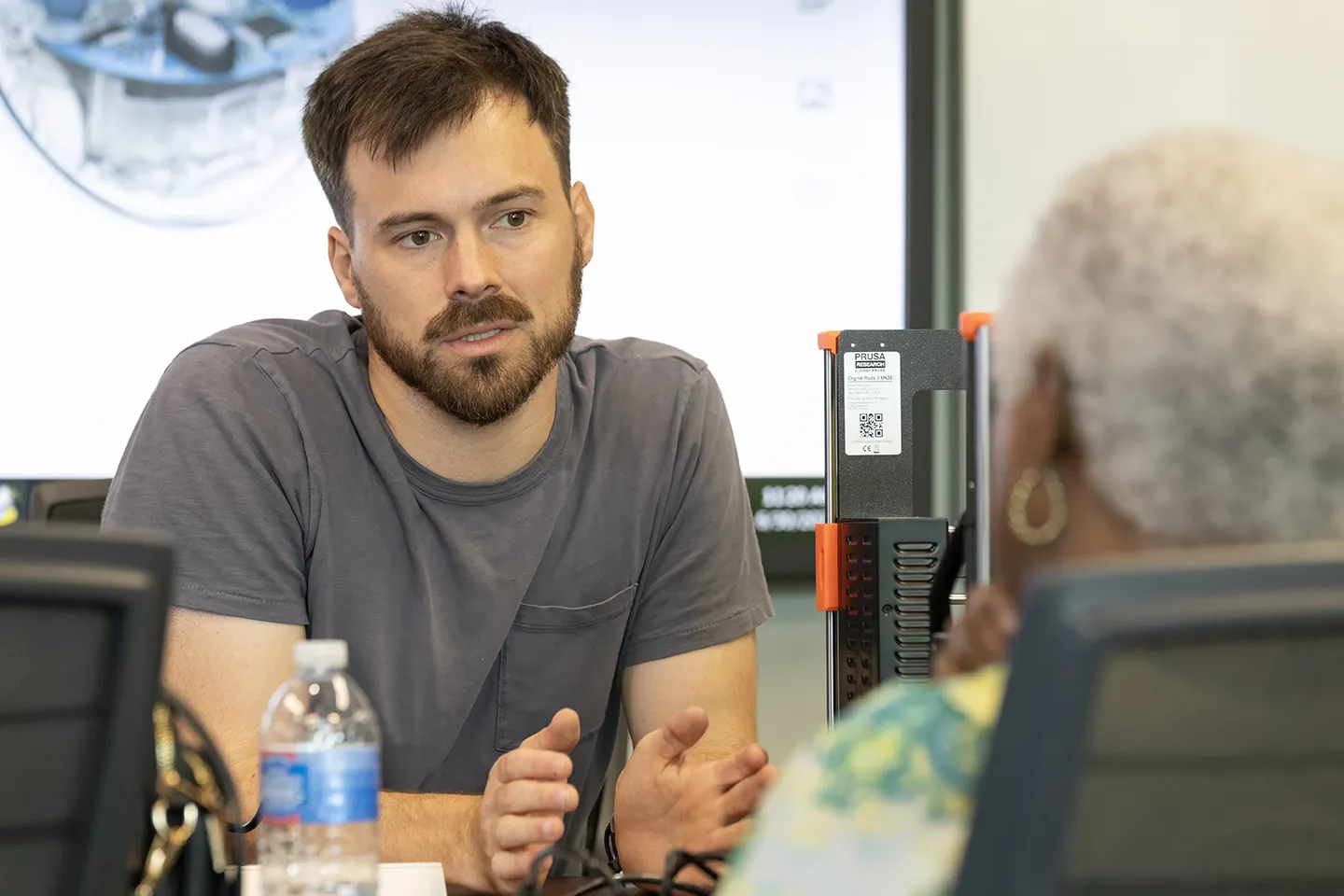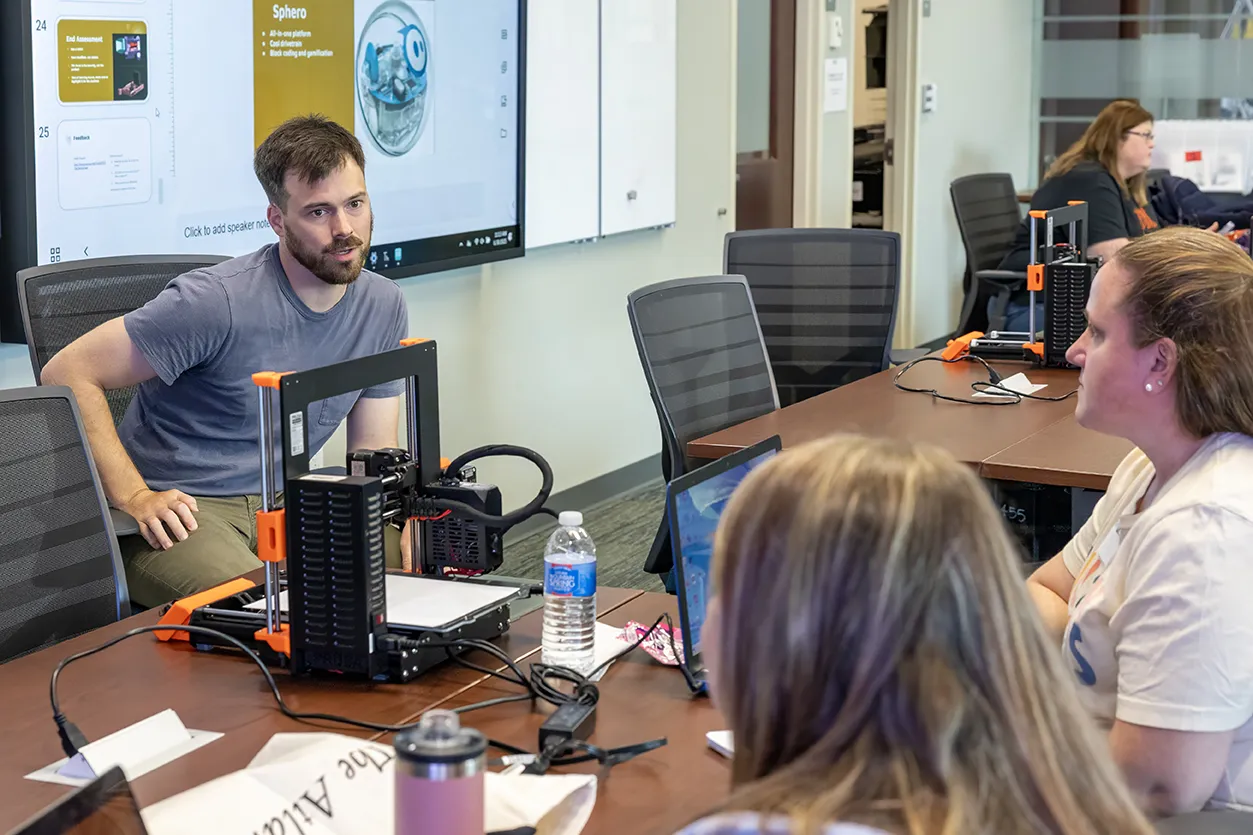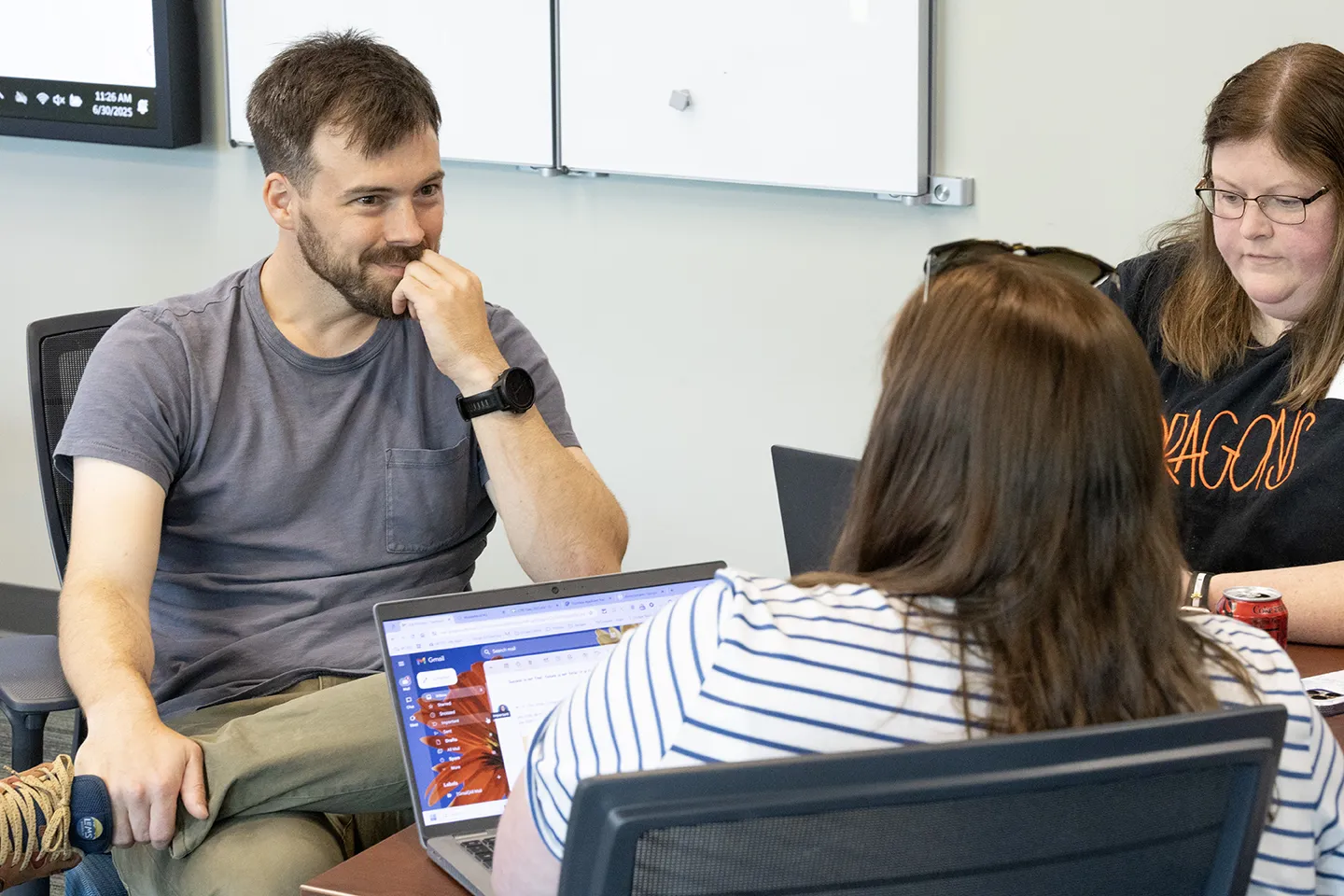Over the past few years, the use of robotics in schools has been on the rise. The problem is that not all counties, and even schools, are on the same level. On June 30, 2025, ORAU hosted a professional development program for 6th-12th grade teachers titled, “So You’re a Grade 6-12 Teacher with a Robot Kit…Now What?
This is a fascinating question. There are many schools that have begun incorporating robotics into their curriculum, but that’s just the first step. Once you have the equipment, how does a teacher go about creating lesson plans around robotics? Is this technology that can be used in a regular science class, or is it only for engineering and robotics classes? These are the types of questions that Nathan Kenner, an engineering teacher at West High School and the instructor for this course, wanted to help the participants understand.

The workshop was designed to provide teacher participants with the opportunity to increase their use of any robotics materials they have in their school. The course covered various options for robotics kits – including Arduinos, Raspberry Pis, Boe Bots, Spheros and XRPs – and options and examples for teaching and using robotics in the classroom. Kenner wanted this class to be individually focused so that each participant took away next steps that they felt were the most important.
“Each person here today needed to walk away with something different. I really wanted them to walk away knowing what the next question to ask was because I think that’s the most important aspect of robotics, ‘what should I be learning next?’” said Kenner. “I could pretend that my robotics curriculum makes sense for every teacher, but there is no world in which that is true. My kids are different than every other group of kids. I like focusing on using robotics to solve real world problems because that’s empowering for the students.”

In addition to talking about technology, Kenner also took time to discuss what he thought was the most important takeaway, and that is how teachers could use robotics to inspire their students. Whether a teacher is just learning about robotics or they have been doing it for years, the main goal is connecting with students. One thing that Kenner talked specifically about was his method of project-based learning. Robotics can be frustrating for students at first, especially when they are first being introduced to coding.
Kenner emphasized that robotics and coding is ultimately about trial and error. He wanted the teachers to not be afraid to try something and fail, which is a lesson that is also valuable for students. If the students are always worried about making mistakes, they will not be willing to test out their robots. That is why Kenner emphasized using checkpoints when setting up a lesson plan for robotics. This forces students to take the first step of testing their prototype. Once that barrier is removed, they are more likely to keep fine tuning their skills, and that is what leads to success in the classroom.
Veronica Cordell, who is an educator at L&N STEM Academy in Knoxville, said she took away many valuable lessons that she can now apply to the upcoming school year. Cordell has also completed several other professional development courses at ORAU this summer, both in-person and virtually.
“The thing that first intrigued me was the name of the course. What do you do once you have a robotics kit? Where do you go from there, and how do you turn that into a class project and make sure you know all the background you need to know as a teacher to answer questions as the students create?” asked Cordell. “I wanted to build confidence that I know how to start off with a robot kit and the variety of topics discussed today was great for me to take back to my students.”
Want to learn more about how ORAU is impacting STEM education? Be sure to check out the education section of our blog to read how we are impacting the next generation of the STEM workforce.
